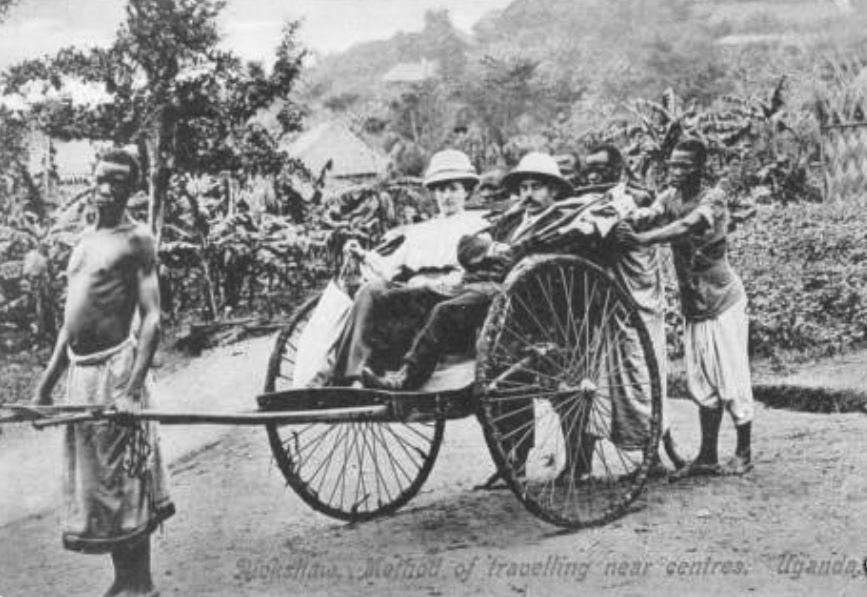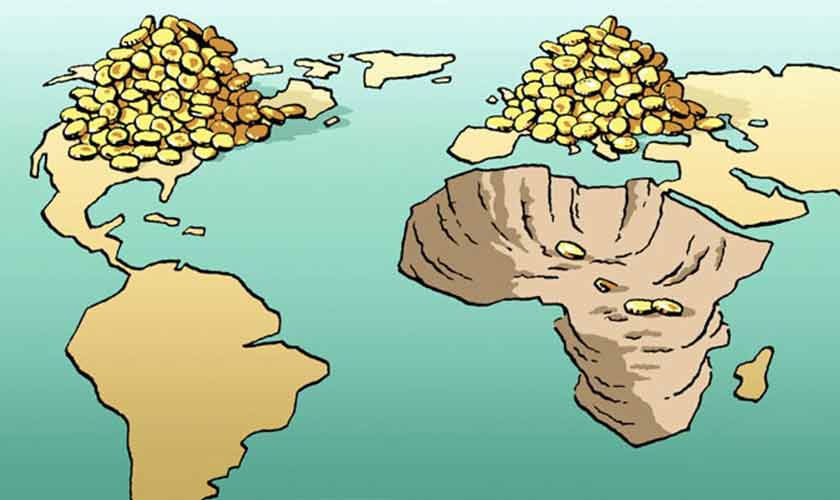Global economic inequality is the outcome of different historical events. Colonialism is one of the most influential legacies that leaves an indelible mark on societies worldwide. Many countries have political and economic inequalities traced back to the colonial era. So, how have colonial legacies contributed to the political and economic inequalities of the postcolonial era? How do these legacies impact societies today?
Colonialism, primarily practiced by European powers, involved the dominance and exploitation of indigenous populations for financial gain (Mamdani, 2018). Colonisers imposed their political and economic systems on colonies, often to the local human detriment (Aiyar, 2015). This legacy has created long-lasting economic and political inequalities that are difficult to overcome.
Colonialism’s effects are diverse and multifaceted. They are most apparent in the legacies that have remained long after the colonisers have left (Ngugi wa Thiong’o, 1986). Economic exploitation, political oppression, and cultural subjugation are common features of colonialism (Said, 1978). These practices left deep scars that have continued to shape the modern world (Fanon, 1963). For instance, colonial powers typically imposed their economic systems on colonies, geared towards extracting resources and wealth (Aiyar, 2015).
What are political and economic inequalities?
Economic Inequalities
One of the most significant impacts of colonialism is economic inequality (Angeles, 2006). Colonisers often extract resources from colonies, leaving local populations without the means to develop their own economies. This has resulted in a difficult economic dependency pattern. Many countries that were once colonies continue to rely on raw materials exports. For example, minerals and agricultural products are sold at low prices, while developed countries control the manufacturing and processing industries. Thus, they reap all value (Heldring & Robinson, 2012). This economic inequality has led to a persistent gap in income and wealth between former colonies and their colonisers.
This pattern of resource extraction and economic dependency continued into the postcolonial era. Many former colonies still rely on raw materials exports (Angeles, 2006; Austin, 2010). This reliance on commodity exports has left many countries vulnerable to fluctuations in commodity prices and market demand. Furthermore, developed countries often control the manufacturing and processing industries, meaning added value is created in these countries, rather than in the former colonies (Heldring & Robinson, 2012).

Source: African Economic History Network
In order to understand inequality within Africa and between Africa and the rest of the world, Obeng-Odoom argues that we need to understand how rents are generated and distributed (including through expropriation of land and the exploitation and exclusion of black labour) and what institutions maintain the current system.
Kvangraven, 2022
This quote highlights the importance of examining rent generation and distribution, explaining significant inequality within (and between) Africa and the rest of the world. Rent refers to income generated by ownership or control of assets such as land, natural resources, and capital. Obeng-Odoom (2014) argues that land expropriation and the exploitation and exclusion of labour are critical factors in rent generation within Africa. Rent distribution is also crucial in shaping inequality, as those who control the assets that generate rent can accumulate significant wealth and power (Obeng-Odoom, 2014).
Political Inequalities
Colonialism also left a legacy of political inequalities. The colonisers imposed their own political systems on the colonies, often excluding local populations from political power. This has resulted in a lack of representation for numerous people in postcolonial countries (Austin, 2010). Even after independence, many countries struggle to establish democratic systems. This has led to them being plagued by corruption and authoritarian regimes. Colonialism’s legacy can be seen in the continuing instability and conflict in many countries that were once colonies (Bayeh, 2015).

Because colonisation generally meant implanting communities that were greatly advantaged over natives, in terms of human capital and legal status, and because the trajectories of institutional development were sensitive to the incidence of extreme inequality that often followed, European colonial activity had long, lingering effects.
Engerman & Sokoloff, 2006
According to Engerman & Sokoloff (2006) there are long-lasting effects of European colonialism on institutional development trajectories in colonised countries. Therefore, their argument is that colonisation often involved the implantation of communities greatly advantaged over natives, with regard to human capital and legal status. One example, in a historical context, is the French Civil Code/Penal Code laws that denied rights to native people (Trang, 2021). This extreme inequality had a significant impact on the development of institutions in colonised countries. These institutions were sensitive to power and resource distribution within society. Colonial legacies continue to influence the development trajectories of former colonies. Extreme inequality persists long after colonial rule (Engerman & Sokoloff, 2006; De Juan & Pierskalla, 2017). This quote underscores the importance of understanding the historical context of institutional development in colonised countries. It also underscores colonialism’s lasting impact on their societies.
Colonial Divide and Conquer
Colonisers often used force to suppress dissent and maintain political control over colonies. This practice often involved dividing local populations and ruling through local elites, loyal to the colonisers (Al-Ahsan, 1998). As a result, many postcolonial countries continue to experience political instability and authoritarianism. In addition, they experience ethnic and religious conflicts that can be traced back to colonial-era divisions (Kosuta, 2017).
how are colonial legacies problematic?
Colonial legacies are problematic for many reasons (Chakrabarty, 2000). Firstly, economic and political inequalities created during the colonial era persist in postcolonial societies. Colonisers often extracted resources from colonies and imposed their economic and political systems, resulting in underdevelopment and dependency (Amin, 1974; Frank, 1967). This has created a substantial income gap between former colonies and their colonisers, which is difficult to overcome. This can be interconnected with forced labour or modern slavery which can thrive where poverty, lack of education, and limited job opportunities can make people vulnerable to exploitation. This is because postcolonial countries often don’t have the means to tackle these issues (Bales, 2016).
Secondly, colonialism has often resulted in the marginalisation and exclusion of many groups of people, including indigenous peoples and minorities (Fanon, 1963). Colonisers often impose their own social, cultural, and political norms on colonies, marginalising and excluding other groups’ beliefs and practices. This has led to a legacy of discrimination and inequality in postcolonial societies (Grosfoguel, 2007).
Thirdly, colonialism often led to cultural destruction (Dirilik, 1994). Colonisers sought to impose their own values and beliefs on colonies, often erasing or devaluing the rich cultural heritage of the colonised peoples. This has resulted in a loss of cultural identity and a legacy of cultural oppression and destruction (Ashcroft et al., 2002).
These problems continue to affect postcolonial societies. Addressing them requires a deep understanding of colonialism’s legacies and their impact on societies today (Dei, 2016).

Source: Aljazeera
moving forward
Addressing colonialism’s legacy requires acknowledging the harm caused and working towards repairing the damage. This may include measures such as reparations, which compensate those harmed by colonialism (Spitzer, 2002). It may also include initiatives aimed at preserving and promoting cultural traditions and practices eroded by colonialism (Smith, 2008).
Building a more inclusive and democratic political and economic system is also crucial to addressing colonialism’s legacy. This involves creating a system that prioritises the needs and rights of all members of society, including historically marginalised groups (Young, 2011). Such a system may involve reforms aimed at reducing economic inequality, ensuring access to education and healthcare, and promoting political participation and representation (Sen, 1999
Finally, addressing the legacy of colonialism requires ongoing efforts to challenge and confront its attitudes and beliefs. This may involve promoting a more inclusive and diverse understanding of history and culture, as well as working towards cross-cultural understanding and respect (Loomba, 2005). Ultimately, addressing colonialism’s legacy requires a multifaceted approach. The economic, social, cultural, and political dimensions of colonialism’s impact on society need to be taken into account (Strongman, 2014).
why Is it essential that we focus on political and economic inequalities?
Focusing on political and economic inequalities is essential for several reasons. Inequalities perpetuate poverty and limit social and economic mobility, preventing individuals from reaching their full potential (Hickel,2021). This has adversely negative long-term effects on a healthy society. Addressing these inequalities is crucial for achieving sustainable development goals and ensuring a more equitable and just world for future generations.
Political and economic inequalities also contribute to social and economic instability, leading to conflict and violence (Collier, 2000). Unequal distribution of resources and opportunities creates tension and resentment among groups, and in extreme cases, leads to violent conflicts (Zemni, 2014). In addition, political inequalities, such as a lack of democratic representation and participation, can result in authoritarian regimes and human rights abuses (Sen, 1999).

Source: The News On Sunday
Addressing political and economic inequalities is therefore critical to creating a more peaceful, stable, and just society. This may involve implementing policies to reduce economic inequality, such as progressive taxation and social safety nets (Alvaredo et al., 2021; Karim, 2018). It may also involve promoting democratic representation and participation, strengthening democratic institutions, and ensuring human rights are protected and respected. Ultimately, addressing political and economic inequalities requires a comprehensive approach that considers their various dimensions and impact on society (Kabeer, 2010).
Conclusion
Colonial legacies cannot be overemphasised. These legacies continue to contribute to economic and political inequalities, limiting opportunities and perpetuating poverty. As noted earlier, the extraction of resources and imposition of foreign political and economic systems by colonial powers has left many countries in dependency and disadvantage. This has left entire societies with limited ability to develop their own economies.
Addressing colonial legacies requires acknowledging and addressing historical injustices, including reparations and restitution. It also requires building more inclusive and democratic political and economic systems that prioritise the needs and rights of all society members, including Indigenous peoples and minorities.
Focusing on political and economic inequalities is essential to achieving a more just and equitable world, as well as the United Nations’ Sustainable Development Goals. This includes promoting growth opportunities and reducing economic inequality. It also includes increasing political representation and participation, strengthening democratic institutions, and ensuring human rights are protected and respected.
Ultimately, addressing colonial legacies and the inequalities they have created requires a concerted effort from governments, civil society, and international organisations. By working together to acknowledge and address these legacies, we can build a more sustainable and equitable future for all people. This includes those affected by colonialism.
achieving the United Nations Sustainability Development Goals (SDGs)
Addressing political and economic inequalities is critical to achieving the United Nations Sustainability Development Goals (SDGs). The SDGs call for action to promote social, economic, and environmental sustainability. They require a focus on addressing the root causes of poverty, inequality, and injustice. By working towards these goals, we can build a more sustainable and equitable future for all people, regardless of their background or circumstances.
A Thrivable Framework
At its core, sustainability simply indicates the ability to continue to survive. ‘Thrivability‘, by contrast, is the next step, beyond sustainability. THRIVE believes that humanity can do better with the knowledge currently available to us. We want to instil the idea that sustainable solutions not only prevent disaster but offer the potential for societies that flourish.
THRIVE Framework examines issues and evaluates potential solutions in relation to this overarching goal of thrivability. We recognise that human happiness can sometimes compete with environmental well-being, which is why we use our ciambella chart to illustrate the ‘thrivable zone’. This is the area between a ‘social floor’ (the minimum required for people to live happy lives) and an ‘environmental ceiling’ (the maximum damage that we can do to the environment before it becomes unsustainable).
Overlaid on these thrivable zones are visual measurements that show impact – whether something is inside the thrivable zone – or exactly where it falls short. THRIVE invests interest in issues fundamental to the integrity of our society. Apart from sustainability, this also means examining issues related to the judicial process and human rights. Safeguarding human well-being in all domains is paramount to THRIVE’s mission.
To learn more about how The THRIVE Project is researching, educating and advocating for political and economic equality and trying to create a future beyond sustainability, visit our website. You can follow our informative, diverse blog and podcast series and learn more about our regular live webinars. Sign up for our newsletter to receive regular updates.























